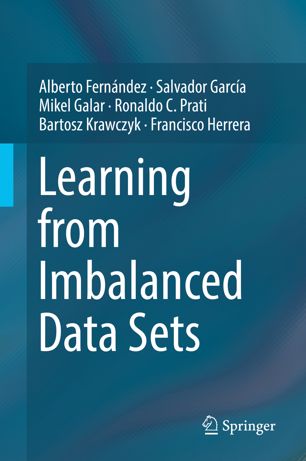

Most ebook files are in PDF format, so you can easily read them using various software such as Foxit Reader or directly on the Google Chrome browser.
Some ebook files are released by publishers in other formats such as .awz, .mobi, .epub, .fb2, etc. You may need to install specific software to read these formats on mobile/PC, such as Calibre.
Please read the tutorial at this link: https://ebookbell.com/faq
We offer FREE conversion to the popular formats you request; however, this may take some time. Therefore, right after payment, please email us, and we will try to provide the service as quickly as possible.
For some exceptional file formats or broken links (if any), please refrain from opening any disputes. Instead, email us first, and we will try to assist within a maximum of 6 hours.
EbookBell Team

4.0
46 reviewsThis book provides a general and comprehensible overview of imbalanced learning. It contains a formal description of a problem, and focuses on its main features, and the most relevant proposed solutions. Additionally, it considers the different scenarios in Data Science for which the imbalanced classification can create a real challenge.
This book stresses the gap with standard classification tasks by reviewing the case studies and ad-hoc performance metrics that are applied in this area. It also covers the different approaches that have been traditionally applied to address the binary skewed class distribution. Specifically, it reviews cost-sensitive learning, data-level preprocessing methods and algorithm-level solutions, taking also into account those ensemble-learning solutions that embed any of the former alternatives. Furthermore, it focuses on the extension of the problem for multi-class problems, where the former classical methods are no longer to be applied in a straightforward way.This book also focuses on the data intrinsic characteristics that are the main causes which, added to the uneven class distribution, truly hinders the performance of classification algorithms in this scenario. Then, some notes on data reduction are provided in order to understand the advantages related to the use of this type of approaches.
Finally this book introduces some novel areas of study that are gathering a deeper attention on the imbalanced data issue. Specifically, it considers the classification of data streams, non-classical classification problems, and the scalability related to Big Data. Examples of software libraries and modules to address imbalanced classification are provided.
This book is highly suitable for technical professionals, senior undergraduate and graduate students in the areas of data science, computer science and engineering. It will also be useful for scientists and researchers to gain insight on the current developments in this area of study, as well as future research directions.